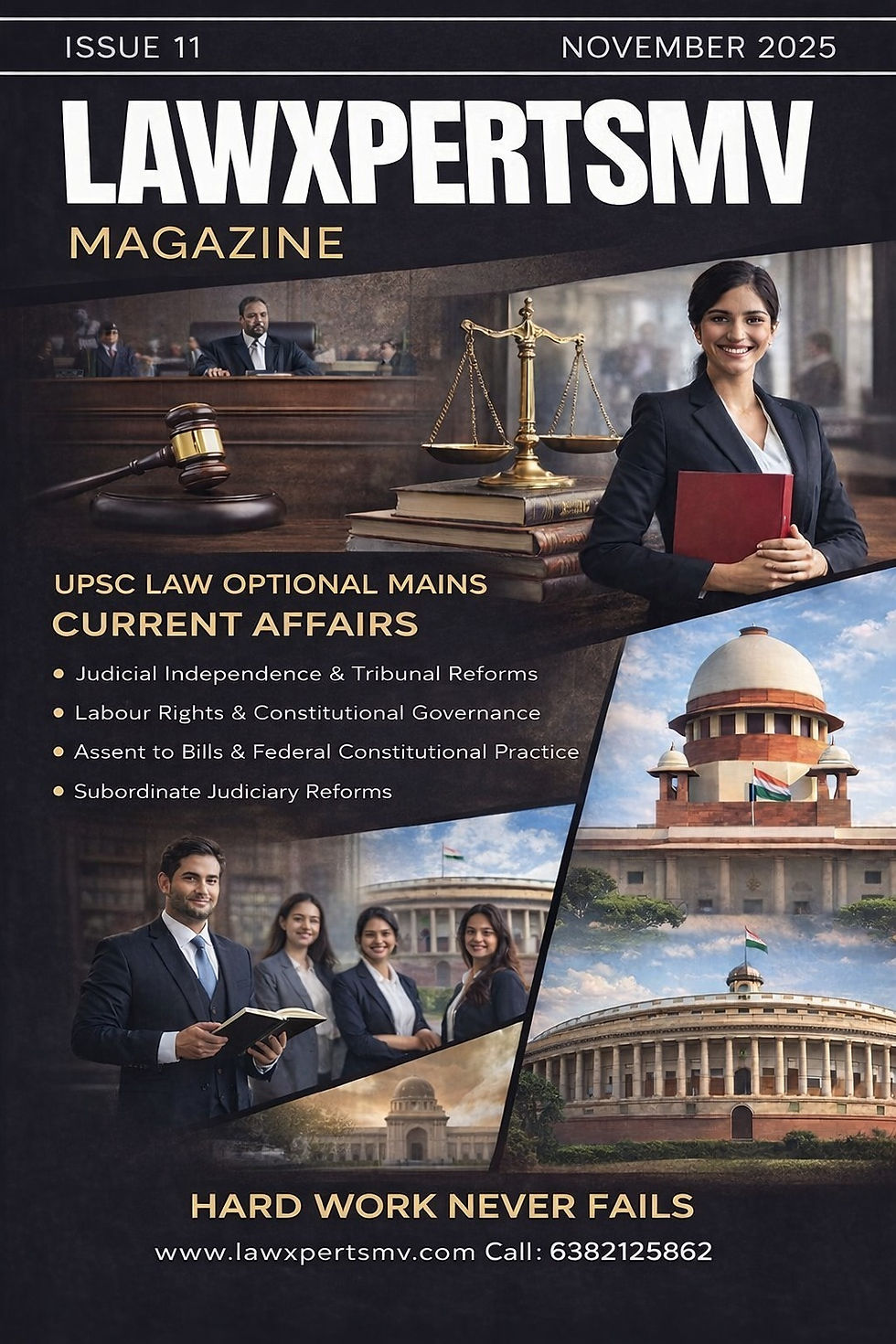Question: When an order for injunction may be discharged, varied or ...
- Lawxpertsmv India

- Aug 22, 2021
- 3 min read
Updated: Aug 26, 2021
SUBJECT | Civil Procedure Code
QUESTION | When an order for injunction may be discharged, varied or set aside? What are the consequences of disobedience or breach of injunction?

How to answer this question?
This question can be divided into 2 parts:
In first part, discuss which Order of CPC deals with the given question and also mention the relevant rules. Discuss all the circumstances as asked in the question under different pointers and do make side headings.
In second part, discuss the consequences of disobedience of order under Rule 2A of Order 39.
Plan for landmark cases and recent cases on the issue
Start writing the answers in lucid style by retaining key words and apt legal terminologies
QUESTION CAN BE ATTEMPTED TILL 26.08.2021
ANSWER WILL BE POSTED ON 26.08.2021
ANSWERS WRITTEN BY ASPIRANTS WILL BE EVALUATED AND POSTED ON 28.08.2021
How to post my answer ?
STEP 1 : Take a sheet of paper and write the answer in it.
STEP 2 : Take a picture of it and click "+ " icon in comment section to post your answer
Answer: Order 39 of the Civil Procedure Code, 1908 which deals with temporary injunctions and interlocutory orders, under its Rule 4 provides for the ‘Order for injunction may be discharged, varied or set aside.’

Who can apply for it ? As per the provision, when any party to a suit is not satisfied with the order of injunction passed by a court it can make an application for discharging, varying or setting aside the concerned order.
Thus, any benefits obtained by any party under Injunction order which is subsequently set aside can be restored by the court by invoking its inherent jurisdiction under Section 151 of CPC, 1908.
The circumstances, under which Order can be discharged, varied or set aside:
a) Misleading or false statement regarding the material fact: If the ex-parte Temporary Injunction was secured by making false or misleading statement in relation to any material fact, the court shall vacate the injunction unless it considers it is not necessary to do so in the interest of justice. The object is that the party seeking the equitable relief must approach the court with clean hand.
b) Change of circumstances: The other situation where the court can discharge, vary or set aside the injunction order is the change of circumstances necessitating such variations, modifications or discharge.
c) Undue hardship to the opposite party: The court can also discharge, vary or set aside the Injunction order if it led to undue hardship to the party claiming such relief.
Furthermore, other important aspect which requires consideration here are the Consequences of disobedience or breach of injunction. In this regard, Order 39 Rule 2A provides that, in case of disobedience of any injunction granted or breach of any terms on which that injunction was granted, the court which granted the injunction or any court to which the suit or proceeding is transferred, may order the following:
i. Attachment of property belonging to guilty person, and
ii. May order detention in civil person for maximum three months period.
Point to Note: The attachment will remain in force for maximum one year but if the disobedience or breach continues beyond one year then the property attached shall be sold. Out of the sale proceeds, compensation may be awarded to the inured party.



















Comments